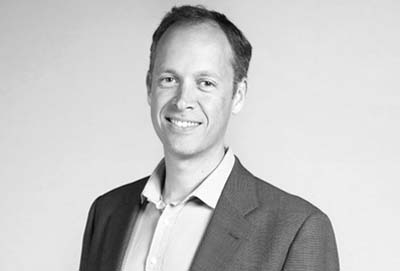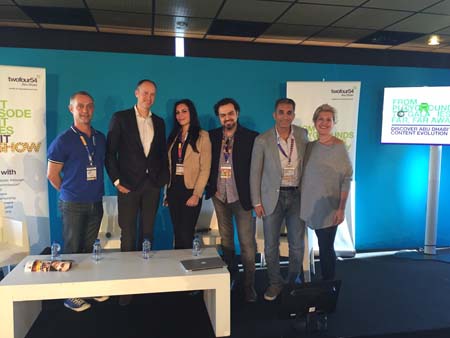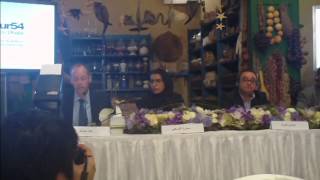Producers and broadcasters discuss the pros and cons as well as the factors impacting decisions on keeping productions in-house or outsourcing them to independents The first panel discussion of the ASBU BroadcastPro Selevision Summit centred on production in the Middle East and whether broadcasters should continue to invest heavily in in-house productions or outsource them […]
 Producers and broadcasters discuss the pros and cons as well as the factors impacting decisions on keeping productions in-house or outsourcing them to independents
Producers and broadcasters discuss the pros and cons as well as the factors impacting decisions on keeping productions in-house or outsourcing them to independents
The first panel discussion of the ASBU BroadcastPro Selevision Summit centred on production in the Middle East and whether broadcasters should continue to invest heavily in in-house productions or outsource them to independents. Moderator Chris OHearn began by asking what defines in-house production.
Sharif Maghraby of O3 Productions, the production arm of MBC, was the first to comment. The free-to-air network has invested in large-scale, big-budget productions in recent years and has built a thriving drama and reality show production ecosystem through O3. Sharif said that when a broadcaster commissions a production, it takes complete control of every aspect of the show, from genre to administration and financial control, and networks with the infrastructure prefer in-house production.
Continuing in the same vein, Badih Fattouh said: It is more cost-effective for big broadcasters to produce in-house, as they have the wherewithal to produce quality products with the infrastructure and skill-set they already own.
Mai Elkhalifa pointed out that as a state broadcaster, DMI uses its infrastructure to boost local talent and create jobs for Emiratis in the media sector. We are mandated to do in-house productions spanning sport, drama, entertainment and news. We also use our facilities for vocational training to create jobs for Emiratis.
Paul Baker added that a thriving independent production ecosystem creates the foundation for a bright production future.
At twofour54, we have over 400 partners working for us and a significant proportion of these are production companies, around 80 of them. They struggle to get commissioning, particularly from state broadcasters, here in the UAE.
He also said that the broadcast sector is growing, with the team of freelancers having grown from tens to 500. However, there is room for growth on the single-camera side, he added. While Abu Dhabi is attracting a lot of foreign productions because of its 30% rebate policy, these productions mainly work with their own crew.
We have to have more programmes to develop local talent, which is the reason twofour54 has mandated that you cant access Abu Dhabis production rebate unless you have UAE-national interns working on the production, he said.
At this point, Elkhalifi said that its not the infrastructure thats lacking, but rather the pitch that falls short.
What we get through our doors is not as sophisticated as we would want it to be. We want to see stronger pitches that make business sense. We want to see branded content integration, we want to see digital, we want to see the whole spectrum of pitches to help us make decisions to outsource content production.”
The panel agreed that to improve production quality, local producers need to pitch the shows right.
How does one know whether a pitch is worthwhile? Sharif said that pilots play a key role in that. Pilot projects should be encouraged, to get a holistic picture of the product, and the onus is on the state broadcasters and large companies to fund pilots to grow the production base in the UAE.
Twofour54 has significant facilities to help pilots. A recent example is homegrown travel show Peeta Planet, which was produced by twofour54 and broadcast by Dubai One.
Another key point that emerged in the discussion was the role of audience measurement.
Ratings are an incentive for independents to do better. A lack of audience measurement is compromising the quality of work here, noted Fattouh.
The Middle East is a star-driven market, and most productions are commissioned or approved based on the talent working on them, which at times poses an impediment to new talent coming to the fore, Maghraby pointed out.
The MCN revolution was mentioned, which has impressed everyone with the numbers. YouTube has opened up a whole new world of content and led to newer business models that are attracting everyones attention in the Arab region.
The discussion then moved on to scripted versus unscripted shows. There is an underlying pattern in production: scripted shows are mostly produced by independents, while broadcasters prefer to produce reality shows in-house. MBC owns most of the international reality show formats which are adapted to Arabic.
There have been attempts from independents to pitch new formats to broadcasters, but these have lacked the criteria that make the show work. They have everything at times, but lack a business model, pointed out Elkhalifa, adding that Dubai TV is doing very well in commissioning non-scripted content.
Fattouh noted that even though drama is strong in the region, there is an element of risk involved. Independent producers create series that have been commissioned or presold, and many a time, these productions never see the light of day.
This time last year, more than 100 drama productions were made from across the Arab world during Ramadan, although more than 25 of them never even made it to the screen, he said, throwing light on some of the challenges faced by producers.
Many producers prefer to produce in Lebanon and Egypt, because the UAE is more expensive and there is a larger talent pool available in those countries.
Maghraby steered the discussion again to the importance of metrics and audience measurement to improve the quality of production. Metrics are the key driver that will attract more money into production from advertisers as well as broadcasters, he pointed out.
Arabic productions should not be limited to the region; they should reach out to the larger diaspora, the panel concluded, and that can only be achieved if there is more investment in local talent.












































































